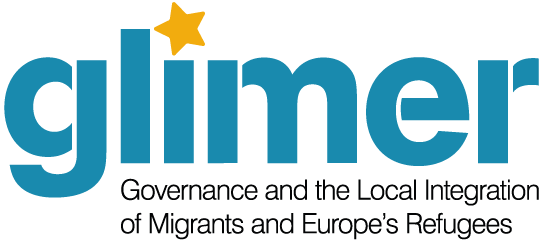As the coronavirus pandemic ravages economies and societies across Europe and beyond, we’ve seen the welfare of displaced migrants tumble even further down host countries’ list of priorities. This is ironic, really, as now more than ever, we are relying on migrant workers to keep up even a semblance of an operational society. COVID-19 has not only highlighted the weakness of the protections that the Cyprus system affords to its migrant and asylum seeking populations, but it has also put the spotlight on the hidden ‘subclass’ of labourers and service workers that we depend on for the provision of basic goods and services, and yet continue to undervalue and prevent from accessing key rights.
As a quick recap, asylum seekers in Cyprus are restricted to a defined list of jobs that are considered low-skilled, often manual and carried out for low wages, regardless of their academic qualifications or work experience. Like many undervalued jobs, many of these have been defined as ‘essential’ during the current crisis. As vast swathes of society are being explicitly asked to practise self isolation and stay home, asylum seekers can be counted amongst those still actively working. They disseminate leaflets into mailboxes outlining guidance on how to prevent and deal with the coronavirus; they cook and deliver meals across the nation; they work on farms and in factories making sure our supermarkets remain stocked; and they collect and process our waste. These are all jobs that increase their exposure to the virus, under conditions that, at best of times, are poorly regulated.
On their part, recognised refugees and persons with subsidiary protection status enjoy, in principle, full access to the labour market. In reality, they come up against many of the barriers that asylum seekers face due to weak integration. Issues ranging from a scarcity of specialised language and other vocational training, non-recognition of qualifications, racial prejudices and a limited national labour market often cause members of this group to make do with any job they can find, relegating them, much like asylum seekers, to roles that are seen as low-skilled and therefore poorly compensated.
In the meantime, the already piecemeal and rickety asylum system has all but ground to a halt: approved resident permits are not being issued, asylum applications are frozen and new ones are not being accepted, and in a particularly cruel — and likely illegal — move, the government has decided to isolate a number of asylum seekers from the general population, moving them from hostels where they had been sheltering to the already overcrowded reception centre in Kokkinotrimithia, a site that the Cyprus Refugee Council has aptly denounced as a ‘tent prison’.

To make matters worse, much of the asylum process, including access to material assistance, as well as job opportunities, is dependent on face-to-face meetings. As the Asylum Information Database (AIDA) laid out in its April 2020 update of a 2019 report:
For first time registration, the applicant needs to be present in the Labour Office in order to receive the unemployment certificate. Currently, the Labour Office is not accepting persons which effectively means that new arrivals who wish to register as unemployed cannot do so and subsequently cannot access material reception conditions.
Even if asylum seekers manage to leave the reception centre, they are essentially on their own:
Given that [they] cannot register as unemployed, which is a prerequisite, it effectively means that they do not have access to material reception conditions either.

While not under the umbrella of displaced migrants, there is also a large minority of third country nationals (TCNs) who also carry out a hefty proportion of domestic work and other manual labour. This segment of the population — a majority of which are women from southeast Asia from low socioeconomic backgrounds — is being explicitly excluded from benefits such as the Special Unemployment Allowance recently put in place by the Cyprus government as relief to wage-earners from the disastrous economic effects of COVID-19.
These TCNs face very similar barriers and challenges to accessing, among others, their employment rights, and are currently experiencing a heightened state of vulnerability. The Association for the Prevention and Handling of Violence in the Family (SPAVO) has already reported a 30% increase in domestic violence across the island. Domestic workers and other migrant labourers whose workplace and home are one and the same, and often shared with their employer, are therefore also at a higher risk of experiencing violence.
And what about the those who are not in the system at all? There is a widespread acceptance of the use of cheap, irregular migrant labour in Cyprus: TCN domestic workers who have overstayed their legitimate work contracts and now do housework or care for children for an hourly wage wherever they can pick up gigs. A number of African nationals — having slipped through the system’s cracks — spend their days waiting at busy intersections in downtown Nicosia for someone to pick them up, take them to a construction site or a field, and then work them for as long as they deem fit. When times are good, these people scrape by, cash in hand. When a disaster like a pandemic hits, they lack even the most rudimentary of social safety nets to fall back on.
The government recently announced the strict nation-wide lockdown measures will be extended until the end of April 2020, and, much like the rest of Europe, there is very little information around how Cyprus plans to eventually emerge from this health crisis. A recession is almost sure to follow, which raises huge concerns around the future of what was a very modest, but at least generally upward moving trend in the country’s treatment of migrants and their hopes of better integrating into the local labour market.
